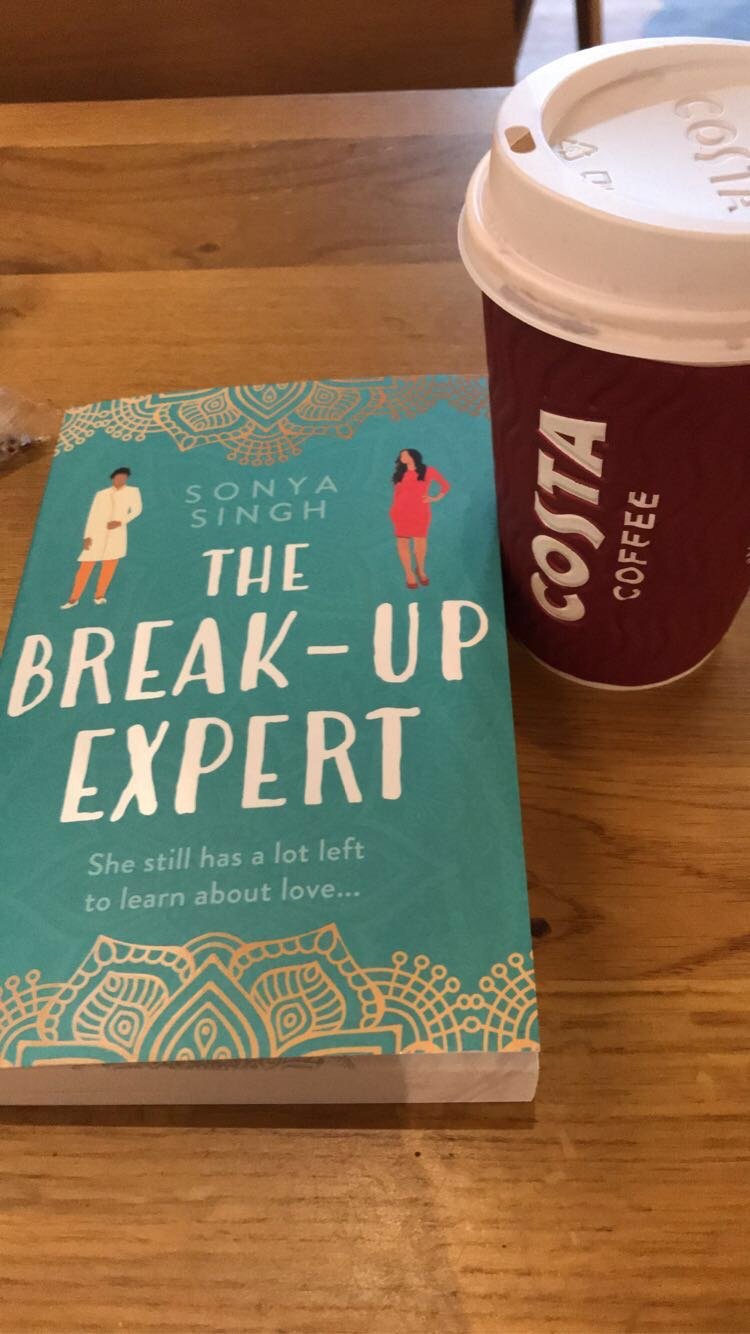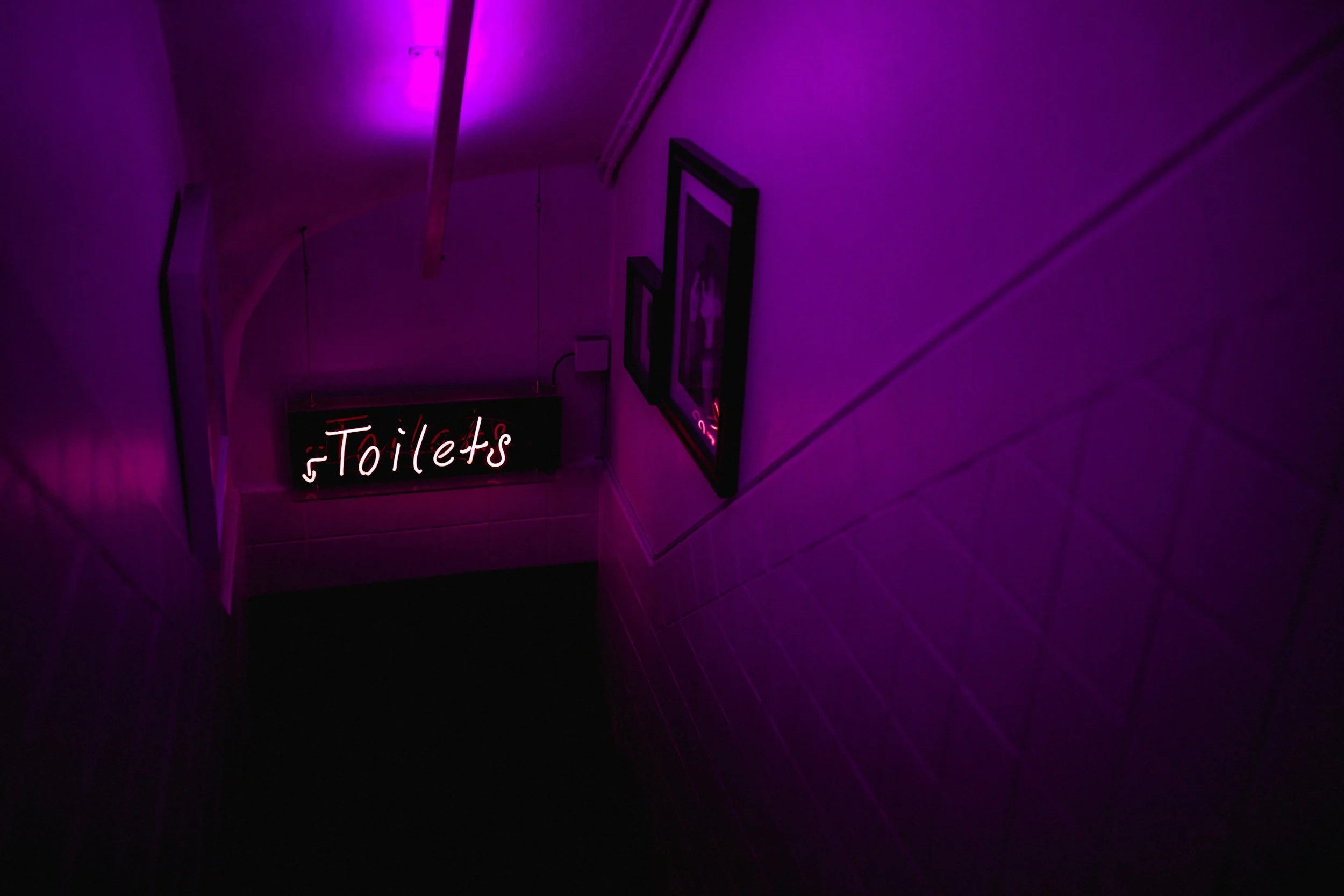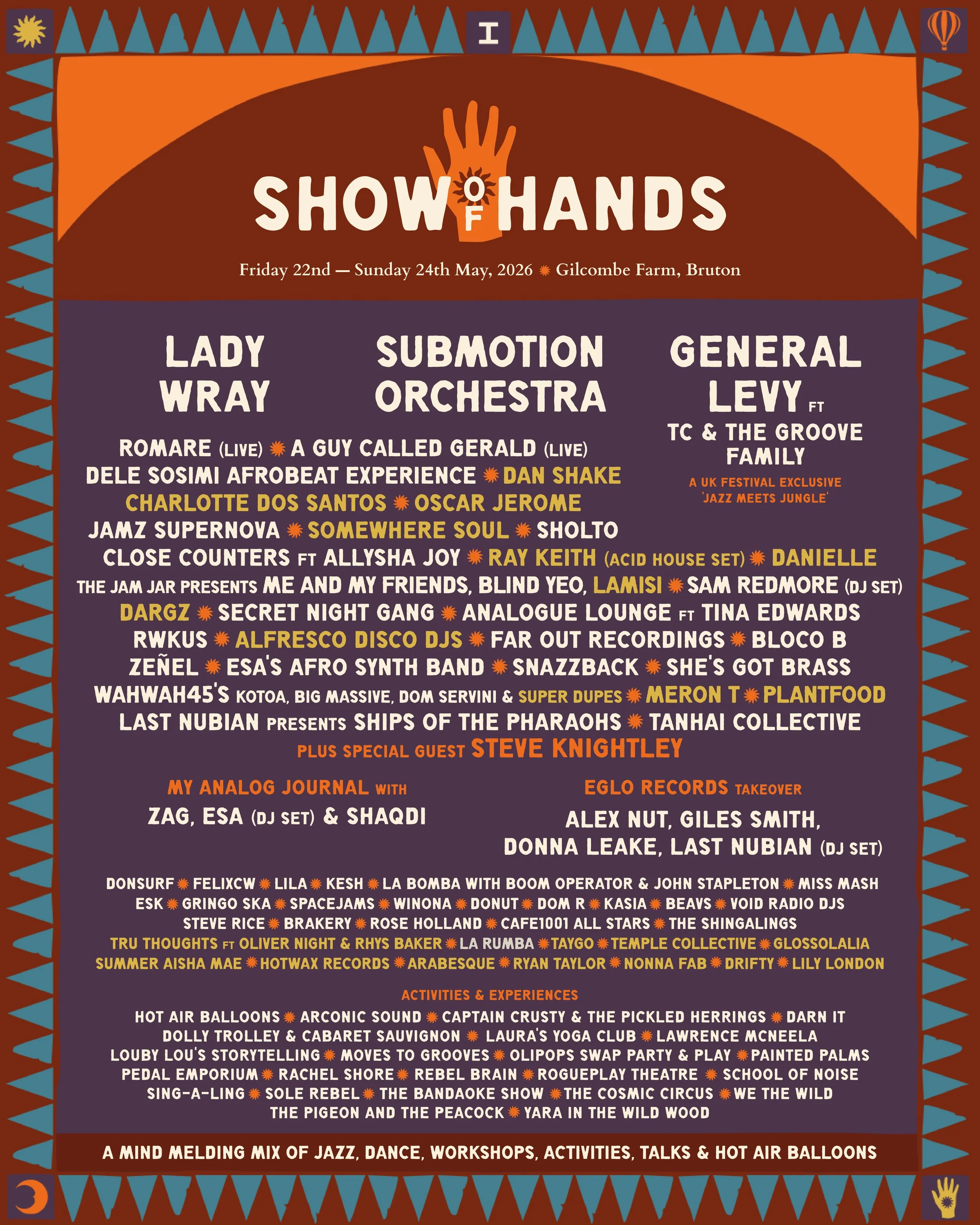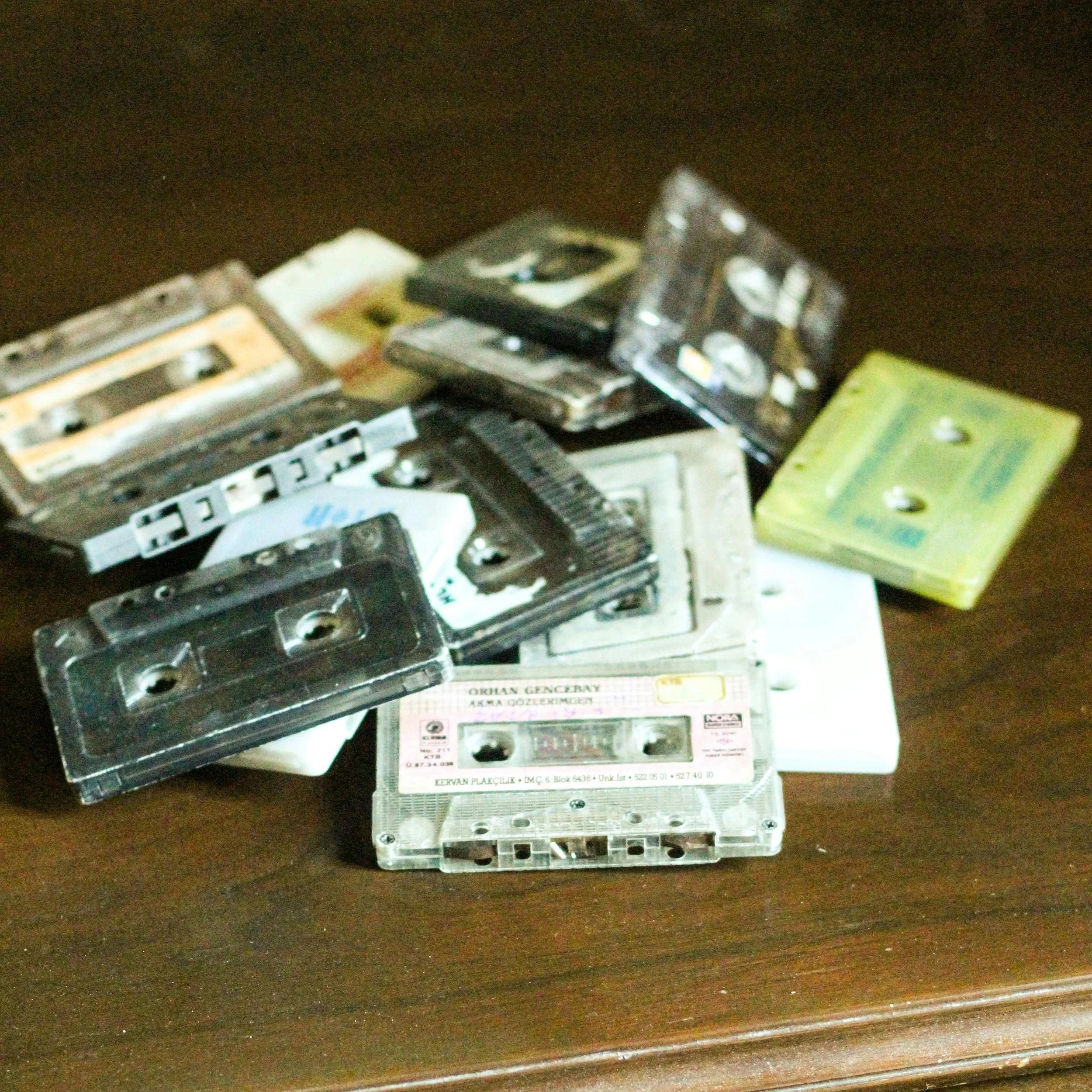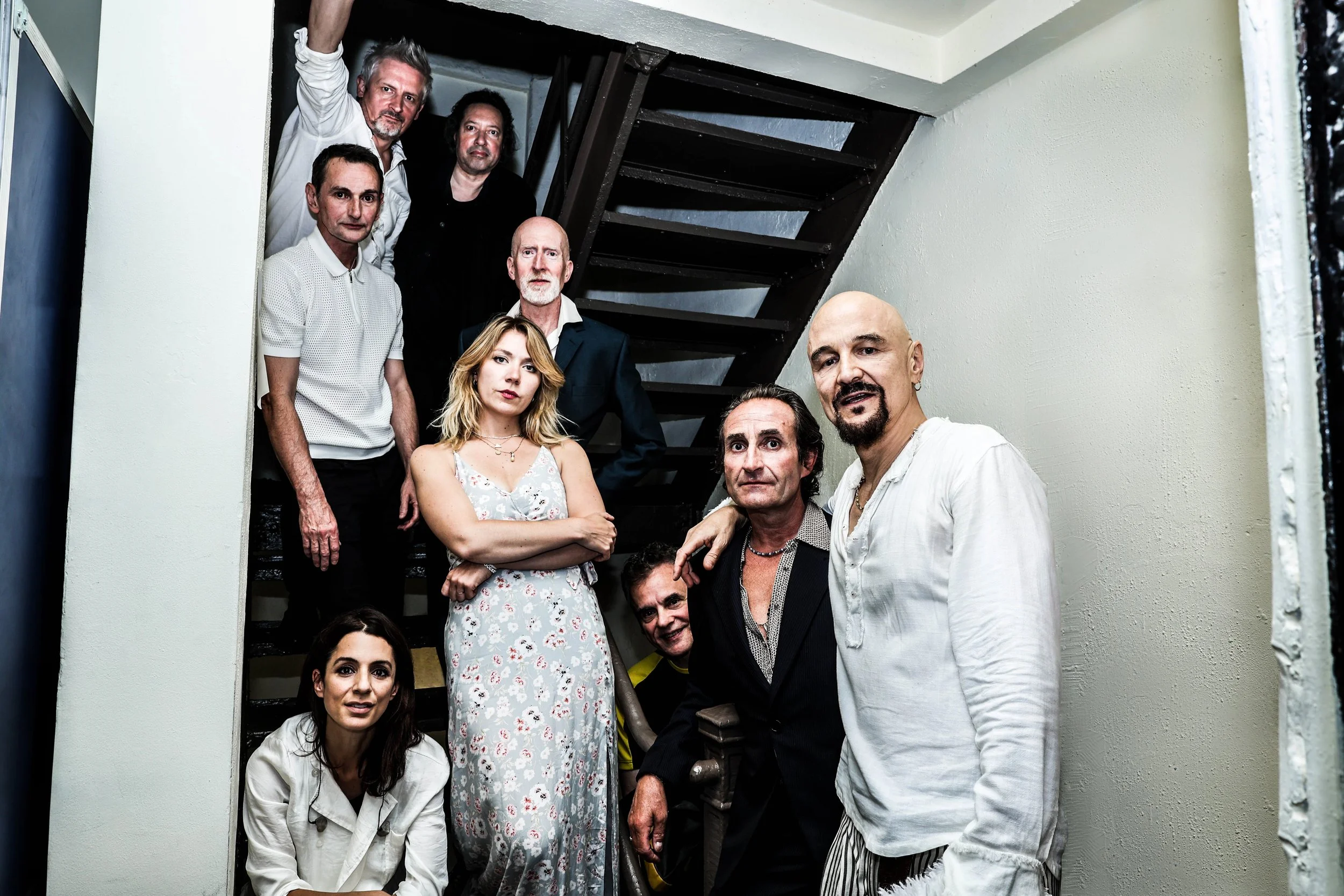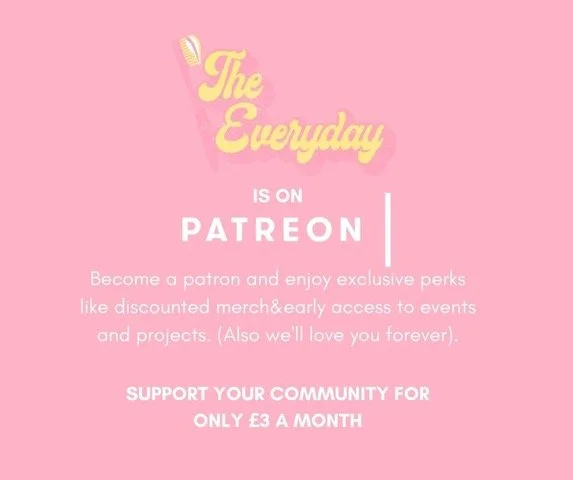Talking To: Sonya Singh
The Breakup Expert follows Manny, the CEO of a successful breakup agency. But when Manny is photoshopped to appear lighter and she comes to realise how disconnected she is from her roots, she decides to reignite the connection - and what better way to do it than attend an Indian wedding. We caught up the lovely Sonya Singh to discuss her debut novel, and how her life experiences shaped the book. We touched on topics like colourism and the struggle of being first-generation immigrants. Grab a snack (and a copy of The Breakup Expert) and enjoy!
So, The Break Up Expert is coming out in less than a month, how are you feeling about this?
Oh my gosh, I am so excited. I actually can't believe it's happening because it feels like it was almost a year ago when it was in the works of publication and because of the pandemic I didn't know if the book would come out due to supply chain issues. I'm so happy it’s coming out in time, I can't wait to pick up my copy, and I'm already seeing loads of people excited about it and that makes me excited too.
How long has this been in the works, and how did you find the planning stage?
I want to say it took a long time, but it didn't for me. I don't want to say that in a way that sounds like there is any ego involved or that is insensitive to authors whose journey took long. My book resonated well with people who are going through breakups, therefore there was humour involved. I think that's why my book was pushed into a place where it came out quicker.
My journey was querying agents, and at first, the response was that there wasn't enough room for another south Asian writer, which really hurt me considering there's a lot of room for other types of authors. To be excluded from this environment due to the way I looked and sounded really upset me. And so I found the right agent, and she's a champion and has really rooted for me. It just made sense when I came across the opportunity to work with Simon and Schuster and they were so excited about the book too. Part of the journey was not changing any of the authenticity that is Indian, from the culture to the traditions. I was so excited to learn that all of that was still staying there and there would be a learning opportunity for other people.
I think it’s important to keep that authenticity in there too because of the themes of the book and how Manny herself is almost pressured to change how she looks just to fit in. It was good to see something that stood out.
Thank you! I think that's what I wanted because when you're watching TV or reading books, and trying to get over a breakup, you are looking for advice in those pages or channels. It can be upsetting when someone doesn’t look like you. I wanted Manny to look like people like me and to resonate with people; whether you're Indian or any other culture where tradition is important to you.
Diversity is important and when we start to see people who look like us in mainstream media, we start to feel more like we belong there, and I think you did a really good job with that.
Oh thank you! And you also don't feel alone because it's already one of those ‘oh my gosh, I’m the only one going through a breakup’; but you’re not, not when someone looks like you. That's really important and that's what I was trying to include in this book, and with Manny’s character.
Can you give a spoiler-free overview of what the book is about?
Haha - do you want to? It's a rom-com, there's going to be moments of romance and comedy humour. The book is about this woman who owns this breakup agency, and it's there to consult people and manage their breakups. As we know, particularly with this virtual world, some of us didn't get closure, some of us were ghosted, some of us don't know what happened to those relationships, and some of us were broken up with through Zoom.
So Manny started this agency that managed people’s breakups, and she came across a situation where she realised she didn't know enough about being Indian and that really started to bother her. So she was trying to figure out this journey of how to be Indian and she didn't really have someone around her who could help with that, until a client came forward with a very different request. She saw this Indian client as an opportunity to educate herself on being Indian, and in exchange, she helps him temporarily break up with his partner. So, she goes on these beautiful journeys to find out what being an Indian woman is in culture, fashion, food and comes to a point where she starts to question her own relationship as well. Did I give too much away?
No, it was a great synopsis. I like the concept of the breakup agency, I think there's a good market for that.
I love that you said that, because I've had people say to me ‘I can’t believe that someone wrote about having a break-up agency’ and ‘are we actually in a time like this?’ Well, the truth is I have been broken up with where I didn't get any closure. Perhaps when I take it from that person's view, they probably thought they were doing me a favour by not giving me that closure or having that difficult conversation, when in fact I really wanted to and I needed that chapter to close. It's important to look at it from both views, from the one being dumped to the one doing the dumping. I do think there is a market for a break-up agency.
I agree, and I think Manny should be the face of it. What inspired the story?
My own breakup. I was in the midst of this situation where it was going on for almost eight years, and I couldn't get in or out of it. I felt that as an Indian woman I needed to carry this relationship on and make it work, and that's not right. A part of it is due to the fact that I was getting older and everyone around me was engaged or getting married, and part of your success plan as a woman is doing this. I was really pushing to get this relationship to a point where that would happen and I put together a PowerPoint presentation as to why we should be together, but then I got a lightbulb moment where I thought ‘no, I shouldn’t have to sell myself to somebody, and you should never try to do that.’ I wasn't respecting myself enough until that moment happened. The whole book is based on the relationships I was surrounded by, but that breakup was the trigger point. A lot of it had to do with the fact that I was dating someone who was not Indian, and I was really trying to figure out how important it was for me to keep tradition and culture alive and part of our relationship, which it wasn't. I was burying that behind, and I didn’t like that feeling.
One thing I liked about the book was that as a South Asian I related to it, and I know other South Asians would too. Those who aren’t South Asian can get a glimpse into how things are, and how culture impacts this. It was quite glamorous to read because of all the weddings.
Thank you! I think for me, I realised Indian weddings have a side of glamour but they also have a very real side to them, which has happened to me. The experiences I wrote with the aunties and uncles have happened to me. I wasn't being stereotypical and I didn’t want to write from a place where the stories were from other people. I have actually had uncles and aunties try to set me up, and those dates have ended that way. An uncle has said to me that I ‘missed the train of marrying his son,’ and these things have really upset me. I think there is this other side of being Indian, which we don't often talk about, where there is pressure to get married and where that puts you as a strong woman. Manny is not a doctor or a lawyer, but the CEO of a breakup agency. I really wanted to have a character who is a strong Indian woman who could be whoever she wanted to be.
I liked how she was different from what people usually expect and that made her special. Who is your favourite character?
I have to say Manisha - I love her! My next book is actually based on Manisha, and she's my favourite character because she says it how it is. She loves her body and she loves what she does; she doesn't care what anyone thinks. She is the one that stands up to aunties and uncles, and I can never do that. There's a little bit of me in Manisha, especially where she has conversations with her mom. I remember calling my mom crazy and she was like ‘you’re calling me crazy?!’ That relationship exists with me and my mom, and I was trying to carry that forward with Manisha.
The book tackles a very important theme that many immigrant generations feel in Western countries, where they are stuck between two cultures. What made you decide to write a book about this?
I have been there. I’m a first-generation and I feel like I've been stuck too. For a large part of my life I denied being Indian. It wasn't until my thirties that I started to embrace it, because at that time I started to date someone who was Indian and he made me look at our culture in a way that I was not really privy to. When I was growing up I was one of six Indian families living in a small town and I was stuck in a gap of ‘what do I be?’ Do I be the Jones or the Smiths? I didn't feel like I could be the Singhs. They didn't look like the Jones or the Smiths, because they wore different clothes and ate different things. When I look back I feel sad for that girl who had to go through that experience. Thankfully I met someone in my thirties who introduced me to my culture and made it cool to be Indian. That's why I wrote the book. I never want to educate people because we have all had different Indian experiences, I just wanted to share my experience and make it laughable.
I really liked how this book touched on some of the common scenes in a rom-com, but with a desi twist; the scene where Manny got stuck in her sari made me laugh, and I think every brown girl can relate to getting stuck in traditional clothing at least once! What made you choose to adapt common romance tropes to fit the Desi scene?
It's because they've happened to me, just like you said they've happened to you. I mean how do you go to the bathroom in a lengha or a sari, and make it so that it's pretty and beautiful? I wanted to add those moments in there but also teach people the difference between an anarkali, and a lengha and sari. There's been so much lack of understanding and even I didn't know what those items were until a decade ago. I wanted that scene to be flirty but still respectful because they're still in an Indian store with an Indian uncle watching over them.
The early stages of the book touch on colourism and skin lightening, what made you choose to address this theme? And what did you hope to achieve by this?
I wanted to bring this theme to the forefront because I look back at my pictures and what I looked like and I went through a phase where I was wearing blue contacts and I did not embrace my dark hair, I put highlights in. I remember the days of using L'Oreal and CoverGirl to lighten up my skin because I didn't want to be that dark, and I didn't understand that the glow in summer when you get a tan is cool vs the colour I have all year round. I am in a place where I embrace all of that now. When I was dating someone previously, they did not embrace the fact that I was Indian and those themes didn't exist and I felt like I was looking a lot more Caucasian as I got older. I didn't like that. I was trying to fit into this relationship and look more Caucasian, and I really wanted to share that theme because it's part of Manny and Adam’s journey too, as he doesn't grasp who Manny is and he is truly colour blind because he doesn't see culture or religion.
It opened my eyes to the fact that I’ve only ever heard of colourism from the South Asian community, where the prettier girls are those that are fairer. And it was quite shocking to read about colourism happening outside of the Desi community, where I assumed the world was a lot more open minded about these things.
The thing is, I grew up in a place where I watched a lot of Indian channels, and most of the commercials cut to breaks where you could buy items that made your skin lighter, and unfortunately that still exists today. I don't want to be in a place where I feel that the lighter I am, the more beautiful I am. This is not a summer tan, this is the colour of my skin, and I am so happy that I was born this way.
As you should be!
Thank you - As we all should be!
The blurb mentions that Manny, who spent a large chunk of her life without her family by her side, had a lot left to learn about love. Do you feel that by the end of the book Manny may have learnt more about the romantic side of love, but she also got to embrace the love of family and community?
I do. I think there is a moment, without trying to spoil it, there is a moment where she understands what her parents did for her. And that's a moment I went through, and I was embarrassed that my parents worked in a factory and weren't lawyers or doctors. But my parents worked 13/14 hrs a day to provide us with the best and what we survived with and who we grew up to be. Part of Manny's journey is understanding that her parents are doing the best they could, given that they had also arrived in a country, to give the best they could not just for themselves, but for their daughter. And instead of being frustrated and angry over some of the turns they made in their journey, it was actually them trying to give Manny everything they didn't have. I think for Manny and her journey that she took, her friends became her family.
I think we can both agree that by the end of the book, Manny becomes this strong woman, who proudly embraces her culture. What advice do you think Manny would give to any young women who are in a similar situation to her?
You are so beautiful the way you are. I know it sounds easier said than done. The way that we are, the quirks we have, the scars we have, the colour of our skin, the curly hair or the straight hair. It's who we are. And that comes from our genes. And our genes come from our parents. And our parents helped us understand our genes and culture in the best way they could. I want people to know that you really get to understand yourself in a growth process as you get older, and living in the moment and realising that mistakes and regrets are experiences. I am who I am based on those mistakes and experiences. We’re so hard on ourselves. And we're in a difficult space with social media, which can make it easy to compare ourselves and there are filters that can make our skin lighter, or make us look like we have the most amazing model cheekbones and we end up looking like people we are not. I don't want to be in a place like that, and if I ever have kids I don't want to ever make them feel like they need to look a certain way. I want them to embrace our culture and our people and every person in a loving way.
What is the message of the book?
There are so many messages because within the book there are elements of aunties/uncles, grief, an Indian woman who discovers, but there are also aspects of the book that deal with individuals who are not what their parents expected them to be. There is an individual who is gay and he was uprooted from his family and his family did not accept that. We touched on this earlier, but sometimes your friends do become your family. It's a romcom, and I know things happen quickly in the book, but they also do in Bollywood movies. Don't take things seriously all the time, it's a book, dive into it and have fun with it. The message is to laugh things off sometimes too.
If the book was to be turned into a movie, who would you cast?
For Manisha it would definitely be Mindy Kaling, just because of the quirky humour. With Manny I always thought of Priyanka Chopra, with a slash of Frieda Pinto. With Adam I saw Matthew McConaughey. And with Sami, I want to say Riz Ahmed, because I think he is so fabulous.
Breakups are very common in the book, and in real life too, can you give our readers some tips on how to write the perfect breakup text/email?
Oh gosh, well if I knew I wouldn't have ex boyfriends who don't talk to me anymore. The perfect text or email is respectful and honest, and you have to let the person know why you are breaking up with them. There has to be a start and a finish. Don't sugar coat it, and say things like ‘you're too good a person’ or ‘I'm not ready.’ NO! Tell the truth - ‘I didn't like how you got up in the morning and brushed your teeth so loud that the entire condo complex could hear.’ These are things you should put into an email so the person knows for next time. It needs to be done in a respectful way, and you need to tell the truth.
Can we expect more books from you in the future?
Yes, I hope so. I do have a second book coming out, and it's on Manisha. It's called The Fake Match-Maker. I am really excited and you're also going to see glimpses of the other characters pop by. I want to continue telling fun stories that are relatable to situations that I have been in and grew up in.
You can get a copy of ‘The Breakup Expert’ here


